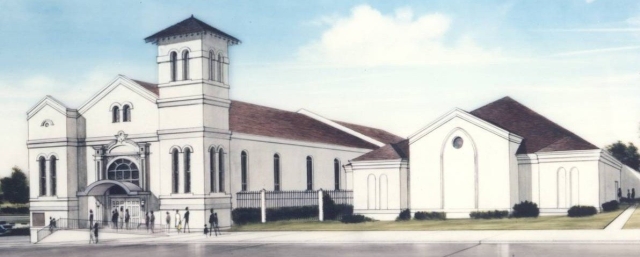At Get Religion it is usually considered bad form to criticize wire service reports for lacking context. There is only so much information that a reporter can pack into a 300 word story. The absence of an explanatory sentence or two that gives the reader some clues as to the meaning of the story is seldom fatal to an article’s journalistic integrity — but it can at times lead to an article coming across as a Haiku.
This article from Reuters entitled “Bulgarian police detain 120 after mosque attack” I readily concede does not fit into the 5 – 7 – 5 sound (on) pattern of classical Japanese poetry nor the 17 syllables of contemporary English Haiku. Nevertheless the imagery created in this short piece does a great job of telling the story.
A problem with imagery, however, is that the reader must be aware of the symbolic meaning of the nouns being used. The story has a wonderful lede:
Bulgarian police detained more than 120 people on Friday after hundreds of nationalists and soccer fans attacked a mosque in the country’s second city Plovdiv, smashing its windows with stones.
Why is this wonderful you ask? On one level there is an absurdist quality to this sentence with overtones of Monty Python, Lemony Snicket and Eugene Ionescu. A mosque has been attacked by a mob casting stones. A Bulgarian mosque has been attacked by a mob casting stones. A Bulgarian mosque in Bulgaria’s second city has been attacked by a mob casting stones. A Bulgarian mosque in Bulgaria’s second city has been attacked by a mob of soccer fans and (Bulgarian?) nationalists casting stones.
Each iteration makes the story ever so slightly more ridiculous, but at the same time it conveys the absurdity of life through the incongruity of its elements and apparent absence of reason. But this is the Balkans.
The story continues:
Over 2,000 people had gathered outside a Plovdiv court as it heard an appeal case dealing with the return of an ancient mosque in the central city of Karlovo, taken over by the state more than 100 years ago, to Bulgaria’s Chief Mufti, the Muslim religious authority.
The soccer fans and nationalists then marched on a mosque in Plovdiv and pelted it with stones. Given the limitations of space Reuters did a great job in reporting this story. At its close the article offered two small bits of context:
Muslims make up about 13 percent of Bulgaria’s 7.3 million people. The Chief Mufti has launched some 26 court cases to try to restore Muslim ownership of 29 mosques and other property across the Balkan state, prompting some public opposition in the predominantly Orthodox Christian population.
These help the reader, but for those not au courant with the modern history of the Balkans, the incongruity of elements might make this story hard to follow. The mosque in Karlovo that served as the flashpoint for this controversy was confiscated by Tsar Ferdinand of Bulgaria after the Second Balkan War of 1913. That war saw an exodus of many Turks and Muslim Bulgarians — the Pomaks (Slav converts to Islam who speak Bulgarian but follow Turkish customs) from the region West of the River Maritsa or Evros. For Bulgarian nationalists the return of the mosque in Karlovo (which is in ruins but preserved as a historical site by the city government) is a political — ethnic — religious insult. Turkish nationalists might react in the same fashion if Hagia Sophia were returned to the Ecumenical Patriarch. An admittedly bad analogy might be if a Mexican-American group petitioned Texas for possession of the Alamo.
That might explain the nationalists in the mob. But soccer fans? In an American context that conveys images of mothers with mini-vans. In Europe it is code language of skin heads, or neo-nazis, or violent nationalists — whose energies are channeled into supporting a particular football (soccer) team and engaging in violent conflicts with the fans of other teams.
Tie all this into recent statements by the Turkish prime minister about his country’s role as a protector of Balkan Muslims, you have all the makings of a Balkan imbroglio.
How do you tell this story in less than 300 words? Reuters did a pretty good job. But it fleshing the story out with a word or two of “why” on the inter play of religion, politics and ethnicity would have made this piece even better.
IMAGE: courtesy of Shutterstock.











